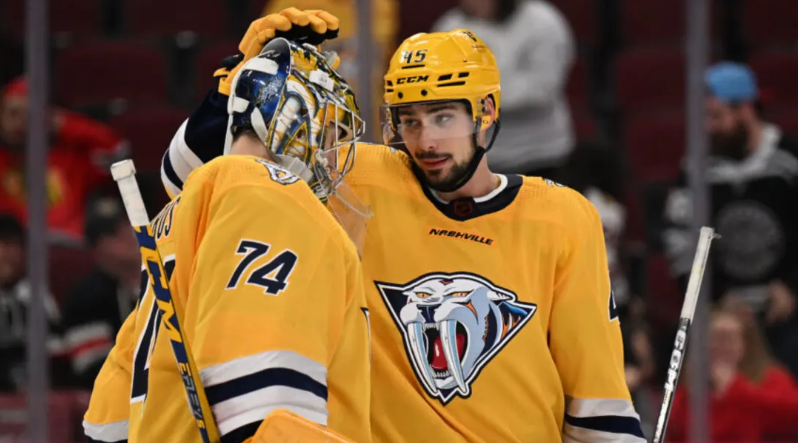

The Nashville Predators have embarked on a bold journey towards Stanley Cup contention, spurred by aggressive moves during the offseason. Their recent acquisitions of Steven Stamkos, Jonathan Marchessault, Brady Skjei, and Scott Wedgewood reflect a team determined to elevate its status from playoff contender to championship contender. However, amidst the excitement and high expectations, there are legitimate concerns and potential pitfalls that could undermine their aspirations for the 2024-25 NHL season.
The 2023-24 season was a rollercoaster ride for the Predators under new head coach Andrew Brunette. After a tumultuous start and a devastating loss to the Dallas Stars, the team rallied with an impressive 20-5-3 run to secure a playoff berth. Their first-round series against the Vancouver Canucks was fiercely competitive, showcasing their resilience despite falling short in six hard-fought games. Offensively and defensively, they operated in the middle of the pack, with key players like Filip Forsberg, Roman Josi, and Gustav Nyquist leading the charge.
The decision to add Steven Stamkos and Jonathan Marchessault underscores Nashville’s commitment to a win-now mentality. Both players bring proven scoring ability and playoff experience, albeit at ages (Stamkos at 35 and Marchessault at 34) where decline becomes a concern. Stamkos, known for his prolific scoring alongside Nikita Kucherov in Tampa Bay, faces the challenge of replicating that chemistry without a comparable playmaker in Nashville. Marchessault, reunited with Stamkos after their brief stint together in Tampa, adds offensive depth and a veteran presence.
The potential impact of these signings extends beyond individual performance to team dynamics. Nashville’s power play, which ranked 16th in the league last season, is poised for improvement with the addition of Stamkos and Marchessault alongside Forsberg, Ryan O’Reilly, and Roman Josi. This lineup promises to elevate the team’s special teams effectiveness significantly. However, concerns linger regarding the team’s overall depth, particularly beyond their top two lines. Tommy Novak’s struggles in the face-off circle highlight a critical weakness that could hamper possession and offensive momentum, especially against tougher opponents in crucial moments.
Defensively, Nashville faces challenges with size and physicality. While their style of play historically favors agile and mobile defensemen like Roman Josi, adding a larger, more imposing presence could prove beneficial in playoff scenarios where physicality often dictates outcomes. The durability of their aging core players is another pressing issue. Can veterans like Stamkos, Marchessault, and others maintain peak performance throughout a grueling season, especially considering the demanding pace of NHL play?
Despite these concerns, the Predators’ potential to contend for the Stanley Cup is undeniable. The synergy between their newly acquired stars and established core players creates a potent mix of skill and experience. Head Coach Andrew Brunette’s strategic deployment of these assets will be critical, particularly in maximizing Stamkos and Marchessault’s impact on the ice. Their success hinges not only on individual contributions but also on collective chemistry and resilience in the face of adversity.
Looking ahead to the 2024-25 season, Nashville finds itself at a crossroads. The window of opportunity to capitalize on their current roster configuration is narrow, given the age and contract situations of key players. Management’s decision to pursue veteran talent reflects a calculated gamble to secure immediate success while balancing long-term sustainability. Whether they can overcome their flaws and fulfill their championship aspirations remains uncertain, but the Predators have positioned themselves as formidable contenders in a highly competitive NHL landscape.
However, while the Nashville Predators have made significant strides towards becoming Stanley Cup contenders, they must navigate several challenges to realize their full potential. The acquisitions of Steven Stamkos and Jonathan Marchessault signal a bold commitment to winning, yet questions remain about their ability to sustain peak performance over a demanding season. With the right adjustments, strategic depth management, and a bit of luck, Nashville has the pieces in place to make a deep postseason run. However, the margin for error is slim, and addressing their deficiencies will be crucial in determining their success in the upcoming season and beyond.

Leave a Reply